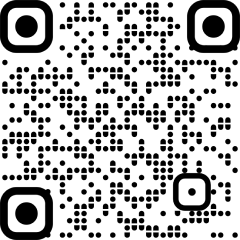
Will it be a short-term fix or a step towards cleaner air?, ET HealthWorld
New Delhi: The Delhi government has appealed to the Supreme Court for a year-round ban on firecrackers, aiming to mitigate air quality degradation and noise pollution. Seasonal restrictions, introduced annually during Diwali since 2017, have proven insufficient to address the capital’s pollution crisis. “We will do it permanently,” Senior Advocate Shadan Farasat, representing the Delhi government, told the court, highlighting the administration’s firm stance.
Firecrackers release pollutants such as sulfur dioxide, nitrogen oxides, particulate matter, and heavy metals like cadmium and lead. These chemicals not only degrade air quality but also contaminate soil and groundwater.
What is SC’s directive to NCR States
The Supreme Court, led by Justices Abhay S. Oka and Augustine George Masih, has sought the views of neighbouring NCR states on a comprehensive firecracker ban, which would include restrictions on manufacturing, storage, sale, and use. “When we refer to a ban on firecrackers, it will also include manufacture, storage, sale, and distribution,” the bench clarified. The court is expected to issue further directions on December 19, 2024.
The judges reiterated the fundamental right of citizens to live in a pollution-free environment, observing that no religious practices justify activities causing harm to the environment.
Expert Opinions on Pollution Sources
While firecrackers contribute to pollution during specific periods, experts argue that other sources have a more sustained impact. As reported by Dipankar Saha, former head of the Central Pollution Control Board’s air laboratory, noted that firecrackers “suddenly increase emissions in the air,” especially in stagnant conditions. He added, “Fireworks could be permitted under favourable meteorological conditions. Last Diwali, we saw minimal impact because of increased wind speed.”
As told to TOI, Professor Mukesh Khare of IIT-Delhi elaborated on the dynamics of firecracker emissions, explaining that pollutants from low-level sources like firecrackers stay near the ground, especially in winters when wind speeds are low and humidity is higher. “The contaminated air is inhaled into the lungs of people,” he said, adding that while summer dispersion reduces the impact, the overall harm remains significant.
Sunil Dahiya, founder of Envirocatalysts, described the proposed ban as a “symbolic step,” urging authorities to prioritise action against more consistent pollution sources, including vehicular emissions, thermal power plants, and waste burning.
Ecological and Health Ramifications
Firecracker residues not only harm air quality but also contaminate soil and water. Heavy metals and chemicals left behind after festivities pose long-term ecological risks. International studies have shown that fireworks disrupt wildlife. For instance, research on Arctic migratory geese in Europe found that firecracker noise caused birds to abandon their habitats, with many never returning.
Chandra Bhushan, CEO of the International Forum for Environment, Sustainability, and Technology, also highlighted the dangers of fires triggered by fireworks, which can damage property and threaten human safety.
Promoting Electric Vehicles for Cleaner Air
The Supreme Court has also emphasised transitioning government and public sector fleets to electric vehicles (EVs) as part of a broader effort to curb vehicular pollution. Justice Oka suggested developing a policy mandating EV adoption for government fleets, a move reminiscent of the court’s landmark 1998 decision to shift public transport in Delhi to compressed natural gas (CNG).
The Delhi government confirmed that all newly procured vehicles are electric, with plans to extend this initiative. The court directed the Commission for Air Quality Management (CAQM) to gather data on government and public transport vehicles to expedite the shift to EVs across NCR.
Compensation for Workers Affected by Pollution Measures
Acknowledging the economic hardships caused by anti-pollution measures, the court ordered NCR states to ensure subsistence allowances for construction workers affected by restrictions under the Graded Response Action Plan (GRAP). The Delhi government reported disbursing ₹8,000 each to 90,000 workers and continues to register more eligible individuals.
“We direct all concerned state governments to file comprehensive affidavits… and ensure every eligible worker has been paid the subsistence allowance,” the bench stated. The court will review compliance in January 2025.
Fireworks have been a contentious issue in Delhi’s battle against pollution, particularly during winter when meteorological conditions exacerbate the problem. Similar studies in cities like Beijing have linked festival fireworks to sharp spikes in pollutants such as sulfur dioxide and PM10. Despite this, experts warn that focusing solely on firecrackers risks ignoring more significant sources like vehicular and industrial emissions.
Delhi’s broader air quality policy includes measures targeting stubble burning, solid waste management, and industrial emissions. As the court deliberates on a permanent firecracker ban, it continues to address these wider issues, aiming for a holistic solution to the region’s persistent pollution crisis.
(With inputs from TOI)
Visit: Valley Vision News







